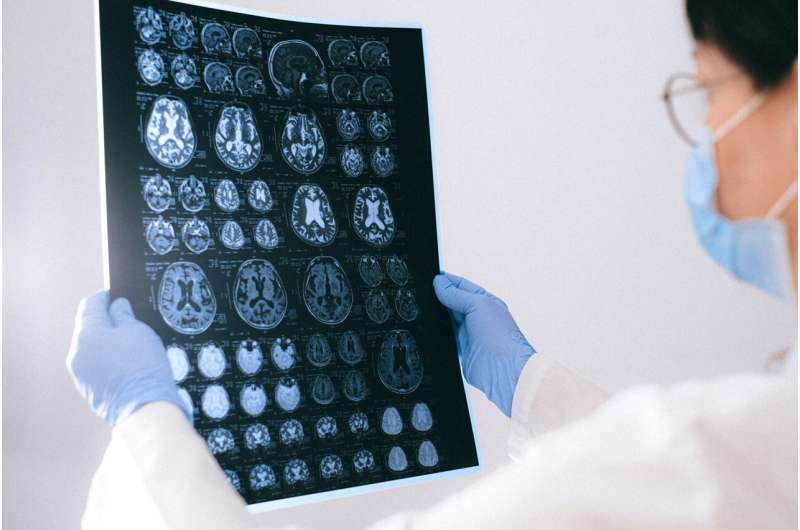This article has been reviewed according to Science X's editorial process and policies. Editors have highlighted the following attributes while ensuring the content's credibility:
fact-checked
peer-reviewed publication
trusted source
proofread
Researchers identify new criteria to detect rapidly progressive dementia

Mayo Clinic researchers have identified new scoring criteria allowing for the detection of treatable forms of rapidly progressive dementia (RPD) with reasonably high confidence during a patient's first clinical visit. This scoring criteria may allow physicians to substantially reduce the time it takes to begin treatment. The findings are published in the Annals of Neurology.
Rapidly progressive dementia is caused by several disorders that quickly impair intellectual functioning and interfere with normal activities and relationships. If patients' symptoms appear suddenly and they decline quickly, a physician may make the diagnosis of RPD. These patients can progress from initial symptoms of dementia to complete incapacitation, requiring full-time care, in less than two years.
The study analyzed data from 155 patients with RPD who were diagnosed at Mayo Clinic in Florida and Washington University in St. Louis. The median age of patients at the time of symptom onset was 69 years old. Patients underwent a standard evaluation, including brain MRI, electroencephalogram, blood tests and a spinal tap. They then were followed for up to two years.
The study team reviewed the data, assigned clinical diagnoses and determined which diseases would be considered potentially treatment-responsive. The team then compared symptoms and test results between patients with treatment-responsive and non-treatment-responsive causes. This identified key factors that were present at the time of the patient's first visit and were associated with treatment-responsive causes of RPD.
Seizures, tumors, MRI features of autoimmune encephalitis, movement abnormalities and other conditions were each associated with treatment-responsive causes of RPD in the study. Of patients with these conditions, 95% were captured through a screening score developed by the Mayo researchers. The score was calculated by assigning points for clinical findings present during a patient's first visit for evaluation of cognitive decline.
"Many conditions that cause rapidly progressive dementia can be treated and even reversed. We found that more than half of the patients in our study with rapidly progressive dementia had a treatable underlying condition. We may be able to identify many of these patients early in the symptomatic course by intentionally searching for key clinical symptoms and exam findings and integrating these with results of a brain MRI and spinal tap," says the study's senior author, Gregory Day, M.D., a clinical researcher, neurologist and vice chair of research of the Department of Neurology at Mayo Clinic in Florida.
Dr. Day's previous research found that other diseases may mimic a rare brain disorder called Creutzfeldt-Jakob's disease, which also is linked to dementia.
"It's crucial to treat patients sooner by identifying a condition that is causing their rapidly progressive dementia," says Nihal Satyadev, M.D., a neurology resident at Mayo Clinic in Florida and the study's first author. "It's equally important to recognize patients who are less likely to benefit from treatment, as this can allow the focus of care to shift to supporting quality of life and appropriate counseling."
The study authors plan to continue research to improve diagnosis and treatment of patients with RPD, and to make it easier for clinicians to apply their tool to recognize patients with RPD. The team has already completed a project considering spinal fluid biomarkers that may improve diagnosis and early recognition of treatable patients. These findings are also published in the Annals of Neurology.
More information: Nihal Satyadev et al, Improving Early Recognition of Treatment‐Responsive Causes of Rapidly Progressive Dementia: The STAM3P Score, Annals of Neurology (2023). DOI: 10.1002/ana.26812
Lindsey A Kuchenbecker et al, Diagnostic utility of cerebrospinal fluid biomarkers in patients with rapidly progressive dementia, Annals of Neurology (2023). DOI: 10.1002/ana.26822



















